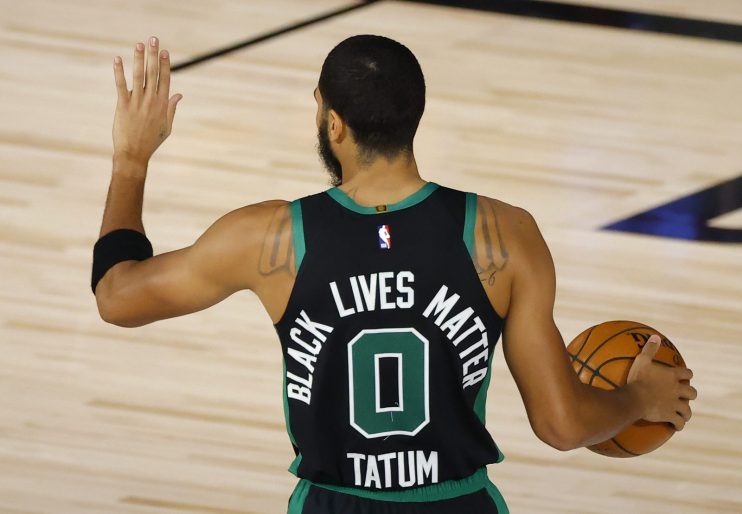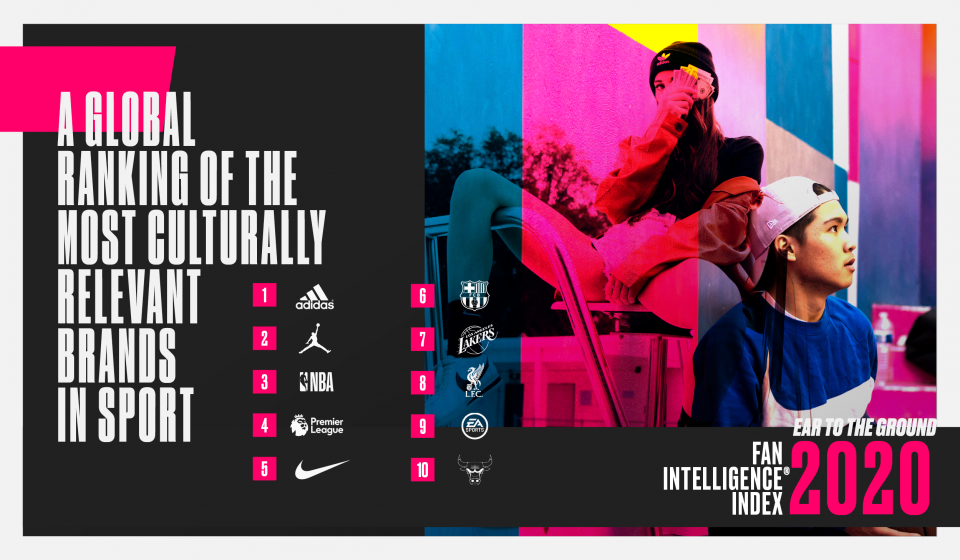‘Cultural relevance’ is the key to brands connecting with Generation Z sport fans

‘Cultural relevance’ is a phrase increasingly being discussed in boardrooms of brands and advertising agencies across the world.
As reaching Gen Z becomes more important every year, the need to go beyond traditional marketing and connect with the values and beliefs of this audience is now vital.
At Ear to the Ground, we know that sport and wider culture are symbiotic, feeding and influencing each other.
This is why today we release our inaugural Fan Intelligence Index, a global study revealing the 40 most culturally relevant brands, according to the most influential fans across sports and esports.
Even disregarding the still-raging global pandemic, 2020 has been a year of unprecedented cultural change. And sport certainly wasn’t spared.
In response, sport became more than just ‘a game’. It became a platform, an escape, and a lifeline.
Why cultural relevance is important
Fans may have been absent from arenas, but issues affecting all took centre stage.
Professional athletes realised their ability to influence change as movements from Black Lives Matter to Extinction Rebellion competed for our attention.
Premier League footballers went head-to-head with government ministers on policy. The world watched, and athletes commented on, the attempted impeachment of an American president.
And one of the world’s biggest sporting icons passed away in tragic circumstances.
In this context, cultural relevance turned out to be the most important attribute for any brand in sport hoping to resonate globally with young, engaged audiences.
The Fan Intelligence Index was created in collaboration with the most culturally connected and influential fans across the world.
It not only provides a definitive ranking based around a brand’s ability to influence culture through sport, but a roadmap for what it means to fans for a brand to be considered culturally relevant.
NBA and Premier League excel
The Fan Intelligence Index confirms many suspected trends but also uncovers others that are just gathering pace.
Despite only 40 per cent of fans liking basketball, the sport dominated the cultural relevance rankings.
The Last Dance, Kobe Bryant’s death and Black Lives Matter made events in the NBA impossible to ignore.
In football, the Premier League ranked in the top five for its ability to Drive Positive Change globally, as it behaved less like a traditional rights holder and more like one of the world’s biggest consumer brands.
With live sport suspended, esports was propelled into the mainstream.
And as far as consuming content, hot new platform TikTok gave fans new ways to connect with their idols.
Surprisingly, no traditional sports broadcaster made the list. But Netflix, Amazon and YouTube all made moves in this space this year, adapting to the consumption habits of younger fans by feeding appetites for longer-form documentaries.
Huge gap between fans and brands remains
Gen Z audiences are known to be proactive in their desire to make a difference to their world. And they now expect brands with a platform in sport to react to the changing terrain as they do.
It’s no longer just a sponsorship, a logo on a shirt. It has to have meaning.

Yet despite being the most important characteristic within the report, ‘driving positive change’ had the worst average score and was generally the lowest scoring for most brands.
This demonstrates a huge gap between what consumers view as important and what brands in sport are actually delivering.
Ultimately, almost all the cultural change in 2020 was driven and accelerated by Gen Z audiences.
Their ability to react in real-time to our chaotic world was testament to a generation that many wouldn’t think of as particularly adaptable.
The Fan Intelligence Index, then, represents a new way of thinking about sport and culture.
For brands, it is a handbook in a relentless era of change that simply refuses to slow down.
Owen Laverty is director of Fan Intelligence at Ear to the Ground.